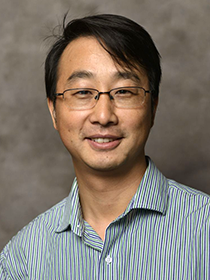
Dr. Aijun Song is an assistant professor of electrical and computer engineering in The University of Alabama’s College of Engineering. He received his Ph.D. from the University of Delaware, and his area of research is underwater wireless communications.
“I always wanted to be a scientist or engineer when I was younger,” said Song. “After I completed my Ph.D. in electrical engineering, I had the opportunity to apply what I learned to solve communications problems in the ocean.”
Song is working on several projects, all of which aim to develop new communication techniques in aquatic environments. For example, he is collaborating with the University of Houston to discover how to use existing underwater oil pipelines for data communications and subsea infrastructure and structure health monitoring. Song said thousands of miles of pipelines crisscross the floor of the Gulf of Mexico, and they are still trying to find ways to take advantage of the existing pipelines to address the communication challenge in the ocean.
One of Song’s other projects is working with Georgia Tech to develop mobile sensor networks to support underwater data collection and environmental monitoring.
“The idea is to use mobile platforms, both autonomous surface vehicles and autonomous underwater vehicles, to alleviate communication difficulties,” he said. “At the same time, the developed communication capability can enhance monitoring or survey missions of these autonomous vehicles because communications supports coordination among them.”
Song said even though finding solutions to these issues are challenging, they are exciting projects driven by new ideas and technologies. By collecting data and measurements through instrumentation and field work, he said they are developing new algorithms and protocols to build these new lines of communication. However, his discoveries could also lead to other uses.
“In the next step, I plan to work with scientists or faculty from environmental science disciplines to see how we can utilize the tools that I process or have developed in different applications,” said Song. “For example, water quality surveys, sampling of nutrients or pollutants in aquatic environments.”
Song said these collaborative efforts with multiple external research units, including the University of Delaware and Dauphin Island Sea Lab, can bring a wealth of knowledge back to UA.
“In particular, the mobile sensor network infrastructure that is under development will provide cutting-edge tools to expand the research of the Alabama Water Institute.”

